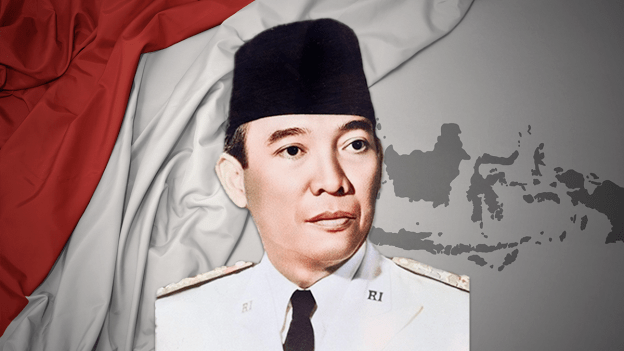The hero who saved Indonesia from the hands of Dutch colonialists: Who is Sukarno?
Statesman Ahmed Sukarno, known as Indonesia's freedom fighter, was born on June 6, 1901, in Surabaya Java. Ahmed, whose father was a poor village teacher, was constantly sick as a child due to his weak body. That's why he was a weak child compared to his peers.

He usually spent his childhood with his grandfather. He inherited his cold-bloodedness and common sense from his grandfather. Ahmed is also known for his love of East Asian puppet plays. The person who perhaps changed Ahmed's life radically was Omar Said Tjokroaminoto, whom he met at the age of 15 and would later become his spiritual father.
From now on, Omar Said will personally take care of Ahmed's education and will have a major role in his development. Thanks to the education he received and his determination, Ahmed learned a total of ten languages during his university life and also succeeded in graduating from the faculty of civil engineering, proving how intelligent he was even then. Thanks to all these skills, he took the first steps towards success in the field of politics and ensured the integration of the people by organizing meetings against Dutch colonialism.
Sukarno (6 June 1901 – 21 June 1970) was an Indonesian statesman, orator, revolutionary, and nationalist who was the first president of Indonesia, serving from 1945 to 1967.
Colonial forces noticed this opposition from the very beginning and arrested Ahmed. Sukarno, who was imprisoned from 1929 to 1931, became the head of the Indonesian Nationalist Party after his detention period ended. Sukarno, whose move was not welcomed by the Netherlands, was exiled to Sumatra. Sukarno, who lived in exile from 1933 to 1942, returned to Java by joining the Japanese side during Japan's occupation of Indonesia in 1942.
Sukarno, who worked as a translator for the Japanese army for three years, declared his country's independence on 17.08.1945 after the Japanese withdrew. As the first head of state of this independent state, he implemented the five basic nationalist principles.
These five basic principles are nationalism, internationalism, democracy, social welfare, and belief in God. While Ahmed Sukarno was the head of the state, the Dutch effort to regain power and turn Indonesia into a colony failed after bloody wars. These victories made Ahmed Sukarno a more popular ruler among the Indonesian people. Following this failure, the Netherlands accepted Indonesia's independence on 27.12.1949. This news was greeted with joy by the Indonesian people, and Sukarno was remembered as the "great leader of the revolution".
After this vote of confidence, Ahmed Sukarno took steps to consolidate his power from 1949 to 1959. He established a unitary state under his own rule. In 1959, he dissolved the constituent assembly and closed all opposition parties. His next move was to take over the presidency as well as the prime ministership. Sukarno called this newly shaped model directed democracy. This model led Indonesia to economic bankruptcy.
While some of the state ministers were increasing their wealth, the people were increasingly faced with poverty, and the public's property was rapidly being expropriated. After all this, Sukarno declared himself president for life to further strengthen his power and began to see himself as an indestructible dictator.
The satisfaction of the people gradually gave way to grumblings and then to uprisings and assassination attempts. Despite many assassination attempts, none of them were successful. While all this was happening in domestic politics, Ahmed Sukarno, who aimed to strengthen his influence in foreign policy, tended to break his ties with the West and began to get closer to China. In the 1950s, he deported all the Dutch people in his country; He left the United Nations in 1965 after Malaysia, known as pro-Western, became a member of the United Nations.
In September 1965, a coup attempt took place in Indonesia. The coup plotters tried to take the capital under control by killing the general at the head of the army. This coup attempt was suppressed by one of the army generals, Suharto, and the government was again taken over by the army. After this incident, when it was understood that Sukarno supported this movement against the army, he lost his only supporter, the army, and was removed from the prime ministership in 1966 and the presidency a year later. He was replaced by Suharto, who won the love of the people by preventing the coup. During the Suharto administration, there was a rapprochement with the West in foreign policy; A compromise was reached with Malaysia. Sukarno passed away from kidney disease in 1970 at the age of 69.
Sukarno, who attracted attention with his private life as well as his political life, had his first marriage with his spiritual father's daughter, Siti, in 1921. They divorced in 1923. He married his second wife, Inggit Garnisih, in the same year. Sukarno, who separated from his second wife in 1942, married his third wife, Fatmavati. He married Hartini in 1954 without divorcing Fatmavati. His fifth wife was Ratna Sari. Sukarno, who also had unofficial relationships during these marriages, was remembered worldwide as a womanizer.
